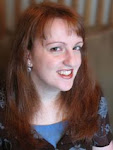Reviewed by Laura Madsen, mom, writer & veterinarian
Most readers have probably seen Steven Spielberg’s movie version of JURASSIC PARK, which was released in 1993, won a bunch of Oscars, and earned a zillion dollars at the box office. The special effects were extraordinary for the time. I still remember seeing the movie on opening day (wearing amber earrings especially for the occasion) and being wowed by the scene when the protagonists first see brachiosaurs towering over the trees.
But: Don’t judge a book by its movie. The book is better.
The plot, if you’re one of the few who’ve never heard of the novel or movie, is a Mary Shelley-esque warning about the dangers of unchecked scientific advancement. John Hammond, a wealthy, eccentric dinophile, buys an island in Central America and establishes Jurassic Park, an amusement park/ zoo featuring cloned dinosaurs. His scientists extract dinosaur DNA from blood from the guts of ancient mosquitoes trapped in amber, and then recreate the living creature from the DNA.
The entire novel takes place in one weekend. Like many of Michael Crichton’s thrillers (ANDROMEDA STRAIN, CONGO, SPHERE), the novel throws assorted strangers together in an isolated and dangerous situation. Some live, some die—usually horribly and creatively. In this case, the island is cut off from communication with the mainland, a storm approaches, the bad guy sabotages the system so he can steal frozen embryos, the electric fences fail allowing the dinos to run amok, and the tyrannosaurs and velociraptors learn that humans are yummy snacks.
The main characters are paleontologists Grant and Sattler, mathematician/ chaos theoretician Malcolm, attorney Gennaro, park operator Arnold, game hunter Muldoon, geneticist Wu, veterinarian Harding, publicist Regis, computer guru Nedry, and Hammond’s grandchildren Lex and Tim. In the movie, many characters were eliminated or changed unnecessarily (i.e., making Grant and Sattler a romantic couple and changing the ages of the kids), but in the book they are fully developed and much more interesting. For example, in the movie, Gennaro is Hammond’s toady, a wimpy “yes man,” but in the novel he is concerned about safety in the park and frequently challenges Hammond.
Some of the best scenes from the book didn’t make it to the movie: a raft trip through a pterodactyl aviary, Grant killing velociraptors with poisoned glowing blue eggs, Grant and Sattler investigating a raptor nest, and—most importantly—Hammond getting his come-uppance and finally learning the dangers of hubris when he is unceremoniously eaten by tiny procompsognathids.
The story is lots of fun, of course, but is also a commentary about modern Western society’s dependence on science. Malcolm says, “We live in a world of frightful givens. It is given that you will behave like this, given that you will care about that. No one thinks about the givens. Isn’t it amazing? In the information society, nobody thinks. We expected to banish paper, but we actually banished thought.” Genetic engineering was just beginning to be explored in 1990, but the issues that Crichton raises are still relevant in 2012. There is very little oversight when it comes to genetic engineering, and we don’t really know what will happen in the long term when genetically-engineered plants and animals are released into the wild (such as the AquAdvantage genetically-modified salmon).
The movie focuses on Nedry’s sabotage and dinos eating people dramatically, but the book explains that the park was already doomed before Nedry: dinosaurs had already escaped the island and killed people on the mainland, and the supposedly sterile dinosaurs on the island had already started breeding. Unforeseeable complications always develop when real life is involved.
Market: Adult fiction (sci-fi thriller)
Language: moderate
Violence: lots of dismemberment, blood and gore
Sensuality: none
Adult themes: science, chaos, death, betrayal






















1 comment:
I actually really loved the movie, but if you're saying the book is better, then I have to read it!
Post a Comment